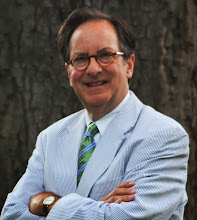Tuesday, September 27, 2011
Hobbs Responds to Potter
Media educator Renee Hobbs finds much wrong with James Potter's recent essay on media literacy in the Journal of Broadcasting & Electronic Media. According to Renee's blog post (Picking A Fight) "it omits so much of the innovative and important work that has emerged in the last ten years from scholars across the fields of communication, education and public health." Read Renee's response as well.
Saturday, September 24, 2011
New High School Digital Ethics Curriculum Unveiled
Everyone is talking about the opportunities and risks of new digital media, especially for young people. Research suggests that young people often lack mentorship in their online lives, especially from adults who are savvy about the ways of the web and can offer them guidance into what it would mean to take an ethical course through their digital lives. Many young people want to do the “right thing” online, even as they are confronted with a range of dilemmas, but may need some help identifying good courses of action.
In an effort to address this gap, researchers at Harvard, MIT and USC spent three years developing a casebook of curricular materials called, Our Space: Being a Responsible Citizen of the Digital World. Our Space is a curriculum designed to encourage high school students to reflect on the ethical dimensions of their participation in new media environments such as Facebook, YouTube, online games, and blogs. The curriculum contains role-playing activities and reflective exercises that invite youth to consider the ethical responsibilities of other people online, and whether and how they behave ethically themselves online. These are raised in relation to five core themes and units in the curriculum: identity, privacy, authorship and ownership, credibility, and participation. All curricular units and lessons are free and available for download.
For more information, visit: http://www.goodworkproject.org/practice/our-space/
or http://newmedialiteracies.org/our-space-being-a-responsible.php
For more information, visit: http://www.goodworkproject.org/practice/our-space/
or http://newmedialiteracies.org/our-space-being-a-responsible.php
Monday, September 19, 2011
Most teachers think digital media literacy should be taught
The Knight Foundation's just released report on social media and the US Constitution has an interesting fact buried in it. If you look at Key Finding #7, the report finds support among educators for teaching digital media literacy. (see page 18)
Thursday, September 15, 2011
Film In The Classroom Webinar/ New Film Study
Register now to participant in this free webinar (September 22) hosted by NCTE consultant/author John Golden. The event is connected to the PBS series Masterpiece and includes John's revised film study guide online.
Thursday, September 1, 2011
Transmedia and how it can be used with students
Students are learning to create stories through transmedia, a genre that encompasses video, animation, images and various media all at the same time, the writers of this blog suggest. Laura Fleming, a media specialist and teacher, and John Connell, an education strategist for Cisco, cite the example of Inanimate Alice, a site in which students can interact with the protagonist and help advance her story, which is told through interactive media such as puzzles, games, video and special effects. More from KQED/MediaShift,
NJ schools embrace social media in the classroom
More New Jersey teachers are seeing the academic benefits of social media, using it as part of classroom instruction. The Freehold Regional High School District has its own Twitter account, and several teachers use the tool to post class assignments, communicate with students about their work or encourage more concise writing. "This technology makes it so much easier for teachers to engage students. ... It's taking the school out into the real world," curriculum administrator Jeff Moore said. Details here.
Subscribe to:
Comments (Atom)

